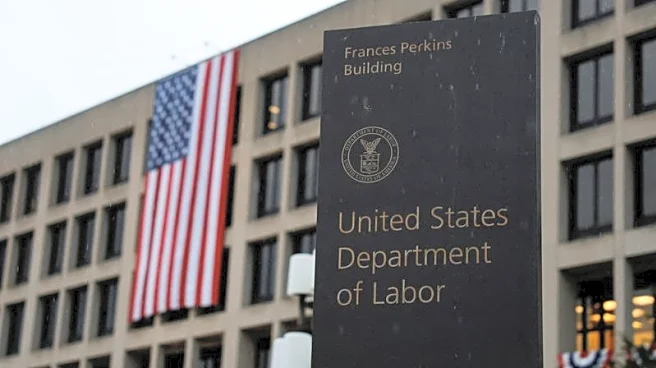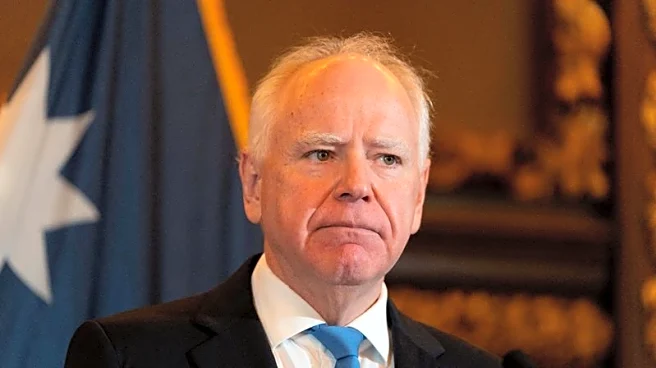What's Happening?
La Liga players have staged protests against the league's decision to hold a regular season game in Miami, which has been censored or not fully broadcast for television audiences. During Barcelona's home
game against Girona, the television feed switched to an exterior view of the stadium, preventing viewers from seeing the players standing still for 15 seconds in protest. Similar censorship occurred during other games, focusing closely on the center circle rather than showing the field. The players' union organized the protest, supported by team captains, to oppose La Liga's plan to play the Barcelona-Villarreal game in the U.S. on December 20. The union criticized the league's lack of transparency and dialogue regarding the decision. Coaches and players have expressed concerns about the additional travel and its impact on their schedules.
Why It's Important?
The protests highlight significant opposition within the Spanish soccer community to La Liga's plan to expand its market by playing games abroad. The move is seen by many as prioritizing commercial interests over the integrity of the competition and the welfare of players. The decision to hold a game in Miami is part of La Liga's strategy to boost revenues and increase the value of its television rights, which currently lag behind the English Premier League. However, the backlash from players, coaches, and fans underscores the potential negative impact on team dynamics and player performance due to increased travel demands. The controversy also raises questions about the governance and decision-making processes within the league.
What's Next?
La Liga plans to make international matches an annual event, despite the protests. If successful, the December 20 match in Miami will be the first major European league game held abroad. The league argues that such events are crucial for promoting Spanish soccer globally and increasing revenue. However, continued opposition from players and coaches may lead to further protests or negotiations. The outcome of this situation could influence other leagues considering similar moves, as Italy's Serie A plans to hold a match in Australia. The response from fans and stakeholders will be critical in determining the future of international league games.
Beyond the Headlines
The protests against the Miami game reflect broader concerns about the commercialization of sports and the impact on local communities. Fans and players argue that moving games abroad undermines the traditional connection between teams and their local supporters. The decision also raises ethical questions about the balance between commercial interests and the integrity of sports competitions. As leagues seek to expand their global reach, they must navigate the complex dynamics of maintaining player welfare, fan engagement, and competitive fairness.










